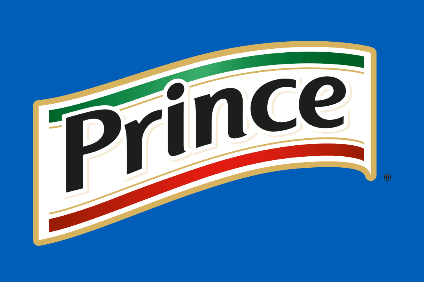
TreeHouse Foods has entered an agreement to acquire the branded pasta business in the US owned by Spain’s Ebro Foods, which recently sealed a deal to sell its dried pasta operations in Canada.
New York-listed TreeHouse, the largest private-label food supplier in the US, said today (5 November) it has signed a “definitive agreement” with Riviana Foods, a subsidiary of Ebro, for its branded pasta portfolio. The deal is expected to be secured for US$242.5m in cash.

Discover B2B Marketing That Performs
Combine business intelligence and editorial excellence to reach engaged professionals across 36 leading media platforms.
In a simultaneous announcement, Illinois-based TreeHouse has raised the lower end of its previous guidance for full-year net sales and adjusted earnings per share as it reported third-quarter results to 30 September. Sales were down 1.1% on a reported basis at $1.04bn, but were up 0.7% in organic terms.
The deal with Ebro includes the brands Prince, Creamette and Skinner, assets that together generated $200m in revenues in the year through June.
TreeHouse will also take ownership of the Ebro manufacturing plant in St. Louis, Missouri, employing 90 people.
The Ronzoni pasta brand in North America will remain in the hands of Ebro, which in October agreed to sell its Catelli dried pasta business in Canada to Italian counterpart Barilla, along with a production facility in Montreal, Quebec.

US Tariffs are shifting - will you react or anticipate?
Don’t let policy changes catch you off guard. Stay proactive with real-time data and expert analysis.
By GlobalDataEbro also retains its facilities in Winchester, Virginia, and Fresno in California.
TreeHouse president and CEO Steve Oakland said: “The acquisition of Ebro’s well-known regional pasta brands further strengthens our portfolio and expands our scale to better serve our national and regional customers. Our existing private label and regional brand pasta business will be a natural complement to the acquired brands and will enable us to further optimise our production network, improve capacity utilisation and deliver greater profitability and free cash flow.”
TreeHouse said the deal is expected to close this quarter subject to “customary closing conditions”.
Ebro said the company will “maintain a strong presence” in the North American market, pointing to pasta and rice assets that include the Ronzoni and Minute brands.
In the rest of TreeHouse’s third-quarter results, operating income turned to a $39.8m profit following a $55.6m loss a year earlier. Net income also went into positive territory to the tune of $12.1m, from a loss of $177.8m in the corresponding period.
Adjusted EBITDA from continuing operations climbed 16.3% to $131m, mainly due to “favourable channel mix and lower operational cost of goods sold”, partially offset by increased Covid-19-related costs.
“Our response to this year’s pandemic-related demand and increased at-home food consumption has proven the strength of our business model,” Oakland said.
Over the nine months, net sales were relatively flat at $3.17bn, compared to $3.14bn. Operating income came in at $95.3m versus a $48m loss. But net income posted a $20.6m loss, narrowing from a $376.5m loss a year earlier.
Adjusted EBITDA rose 9.7% to $348.9m.
TreeHouse today guided to net sales for the year of $4.2-4.4bn (with $1.11bn to $1.17bn expected in the final quarter), from a previous range of $4.1bn to $4.4bn.
The outlook for adjusted EPS has been set at $2.65-$2.75 ($1.0 to $1.1 expected in Q4), compared to $2.55-$2.75. adjusted EBITDA is projected at $490m to $510m ($140-$160m anticipated in Q4).
Oakland added: “We believe our fourth-quarter guidance appropriately captures the range of outcomes related to the uncertainty around the impact of a Covid-19 resurgence on at-home food consumption, as well as Covid-19-related challenges, such as a tighter labour market and the potential for supply limitations.”





